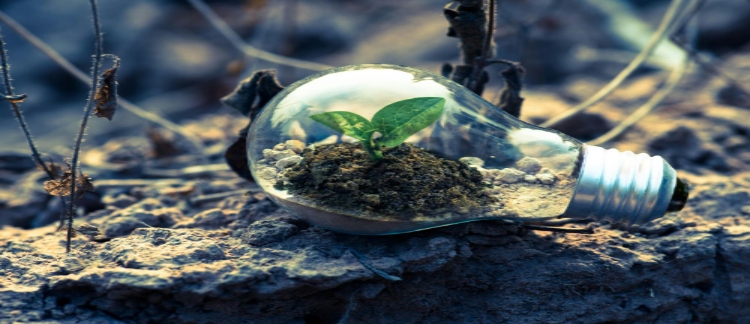The impact of pollution on our planet is undeniable, with consequences ranging from climate change to loss of biodiversity. Pollution affects not only the environment but also human health and the economy. Therefore, it is imperative that we take action to mitigate its effects and preserve our planet for future generations. In this blog, we’ll explore 20 easy ways you can help protect the environment, ranging from small lifestyle changes to impactful actions.
How Does Pollution Affect the Environment?
Pollution, whether it’s air, water, or land pollution, poses serious threats to ecosystems, wildlife, and human health. It contributes to climate change, disrupts natural habitats, and contaminates water sources.
Air pollution, caused by emissions from vehicles, factories, and other sources, contributes to respiratory diseases, acid rain, and climate change.
Water pollution, resulting from industrial waste, agricultural runoff, and improper disposal of household chemicals, contaminates our rivers, lakes, and oceans, harming aquatic life and endangering human health.
Land pollution, including littering and improper waste disposal, degrades ecosystems and threatens wildlife habitats.
Plastic pollution, in particular, has emerged as a major environmental concern, with millions of tons of plastic waste entering oceans and landfills annually, endangering marine life and ecosystems.
Moreover, pollution is a major contributor to climate change, which leads to rising global temperatures, melting ice caps, and extreme weather events. These changes not only disrupt ecosystems but also pose risks to agriculture, water resources, and human settlements. Furthermore, pollution contributes to the depletion of the ozone layer, which protects life on Earth from harmful ultraviolet radiation.
In addition to environmental impacts, pollution has significant economic consequences. The costs of healthcare for pollution-related illnesses, clean-up efforts, and loss of productivity due to environmental damage amount to billions of dollars annually. Furthermore, industries reliant on natural resources face risks of supply chain disruptions and regulatory measures aimed at reducing pollution.
Given these dire consequences, it is essential that we take steps to reduce pollution and protect the environment. Fortunately, there are many simple actions that individuals and businesses can take in their daily lives to make a positive impact.
20 Easy Ways to Protect the Environment
Here is the list of 20 easy ways to protect the environment:
1. Reduce, Reuse, Recycle
Embrace the mantra of reduce, reuse, recycle to minimize waste generation and conserve resources, such as recycled aggregates. Opt for products with minimal packaging and choose reusable items whenever possible.
2. Limit Car Use
Walk, bike, carpool, or use public transportation whenever possible to reduce emissions from cars and decrease traffic congestion.
3. Conserve Water
Turn off taps when not in use, fix leaks promptly, and consider installing water-saving devices such as low-flow faucets and showerheads.
4. Save Energy
Use energy-efficient appliances, turn off lights and electronics when not in use, and consider alternative energy sources such as solar power.
5. Reduce Plastic Use
Replace single-use plastic items like disposable cutlery, cups, and packaging with biodegradable or compostable alternatives such as disposable wooden cutlery and sugarcane bagasse cups.
6. Support Sustainable Brands
Choose products from companies committed to sustainability and eco-friendly practices, such as using recycled materials and reducing waste throughout their supply chains.
7. Support Sustainable Agriculture
Choose locally grown, organic, and sustainably produced foods to reduce the environmental impact of agriculture and support farmers who prioritize environmental stewardship.
8. Practice Eco-Friendly Gardening
Adopt organic gardening practices, avoid chemical pesticides and fertilizers, and plant native species to support local biodiversity and pollinators.
9. Dispose of Hazardous Waste Properly
Dispose of hazardous household waste, such as batteries, electronics, and chemicals, at designated recycling centers to prevent pollution and protect the environment.
10. Conserve Wildlife Habitats
Protect natural habitats and wildlife by supporting conservation efforts, preserving green spaces, and avoiding activities that harm ecosystems.
11. Plant Trees
Planting trees is pivotal in the fight against climate change, as they absorb carbon dioxide and release oxygen. Participate in tree-planting initiatives in your community or support organizations dedicated to reforestation efforts.
12. Reduce Paper Usage
Embrace digital alternatives to paper such as electronic documents, email communication, and online collaboration tools to minimize paper waste.
13. Reduce Meat Consumption
Animal agriculture contributes significantly to greenhouse gas emissions and deforestation. Decreasing meat consumption, particularly red meat, can significantly reduce greenhouse gas emissions associated with livestock farming. Incorporate more plant-based meals into your diet for a healthier planet.
14. Compost Organic Waste
Instead of sending organic waste to landfills where it produces harmful methane gas, compost it to create nutrient-rich soil for gardens and landscaping.
15. Participate in Clean-up Efforts
Join beach clean-ups, river clean-ups, or community clean-up events to remove litter and plastic waste from natural environments and promote a cleaner planet.
16. Minimize Chemical Usage
Use natural alternatives for cleaning and pest control to minimize exposure to harmful chemicals that can pollute the environment.
17. Support Ocean Conservation
Reduce marine pollution by properly disposing of trash, avoiding single-use plastics, and supporting organizations dedicated to ocean conservation.
18. Practice Minimalism
Embrace a minimalist lifestyle by decluttering your belongings, buying only what you need, and avoiding unnecessary purchases that contribute to waste and resource depletion.
19. Support Sustainable Fisheries
Choose sustainably sourced seafood options certified by organizations like the Marine Stewardship Council to promote responsible fishing practices and protect marine ecosystems.
20. Advocate Environmental Awareness
Raise consciousness about environmental concerns and motivate others to take action. Encourage friends, family, and colleagues to join you in your efforts to protect the planet.
Conclusion
Protecting the environment necessitates both individual and collective action. By implementing these 20 easy ways to help the environment into your daily life, you can make a positive impact and contribute to a healthier planet for generations to come. Together, we can protect the environment, preserve natural resources, and create a more sustainable world for future generations. Start making a difference today!











































































